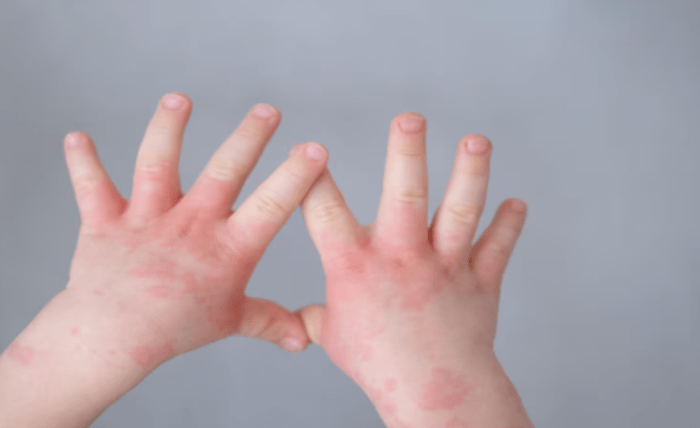A skin disorder called eczema results in dry, itchy skin patches. It’s a common, non-contagious disorder. Contact with an allergy or irritant can exacerbate eczema symptoms. There isn’t a cure, however, there are therapies to help you control your symptoms. The causes of eczema are unknown, but it is believed to be a combination of genetics and environmental factors. Stress, certain foods, and climate changes can also trigger eczema flare-ups.
What is eczema?
Your skin will become dry, itchy, and bumpy if you have eczema. The barrier function of your skin, which helps it retain moisture and shield your body from the elements, is weakened by this condition. Dermatitis includes eczema. A class of diseases known as dermatitis results in inflammation of the skin.
Who is affected by eczema?
Anyone can be affected by eczema. Typically, symptoms start in childhood and persist into maturity. Having a family background or a diagnosis of any of the following may increase your risk of developing eczema:
- Skin disease.
- Allergies.
- Hay fever.
- Asthma.
What causes an outbreak of eczema?
- Low humidity and dry weather.
- Textiles or apparel materials.
- Cosmetics or skin care items.
- Pollution and smoke.
- Cleaners and soaps.
- Stress or your mental health.
- Coming into contact with an allergen.
Why does eczema occur?
Eczema is caused by several reasons, such as:
Your immune system
When you suffer from eczema, your body overreacts to minor allergens or irritants in your surroundings. When you come into contact with a trigger, the body’s immune system interprets these little irritations as potentially harmful foreign invaders, such as bacteria or viruses. Consequently, the triggers set off your body’s defence mechanisms. Inflammation is the protective mechanism of your immune system. Eczema symptoms are brought on by inflammation.
Your genes
If there is a family history of dermatitis or eczema, you are at a higher risk of developing eczema. Additionally, if you have a history of allergies, hay fever, or asthma, you are more vulnerable. Pollen, pet hair, and foods that cause an allergic reaction are examples of common allergies. Another possibility is that you have a genetic mutation that impairs the proper operation of your skin’s barrier.
Your surroundings:
A variety of things in your surroundings can cause skin irritation. Being exposed to smoke, air pollution, harsh soaps, woollen textiles, and some skin-care items are a few examples. Dry air, or low humidity, can make your skin feel dry and irritated. Sweating brought on by heat and high humidity can exacerbate your itching.
Emotional triggers:
Your skin’s condition may be impacted by your emotional state, which may symptoms. In an exacerbation of eczema symptoms. Eczema flare-ups may occur more frequently if you suffer from excessive levels of stress, worry, or despair.
Symptoms
What signs of eczema are present?
Eczema symptoms include:
- Dry skin.
- Skin that itches.
- Skin rash.
- Your skin is bumpy.
- Regions of skin that are thick and leathery.
- Skin that is crusty, scaly, or flaky.
- Swelling.
What does a rash from eczema look like?
Each person who has been diagnosed with eczema may have a varied appearance. An eczema rash might be grey, brown, or purple if you have dark skin. An eczema rash may appear pink, crimson, or purple if your skin tone is light.
Homoeopathy addresses the underlying cause.
- Customised homoeopathic remedies that lessen hypersensitivity
- Supportive advice regarding nutrition, the environment, and mental health
- Long-term outcomes free of side effects and steroids
- Receive treatment from a group of homoeopathic dermatologists who guarantee the most effective course of action.
Some 95% of skin diseases can be successfully treated with clinically established outcomes. International protocols to track the effectiveness of treatment and guarantee the best results.

